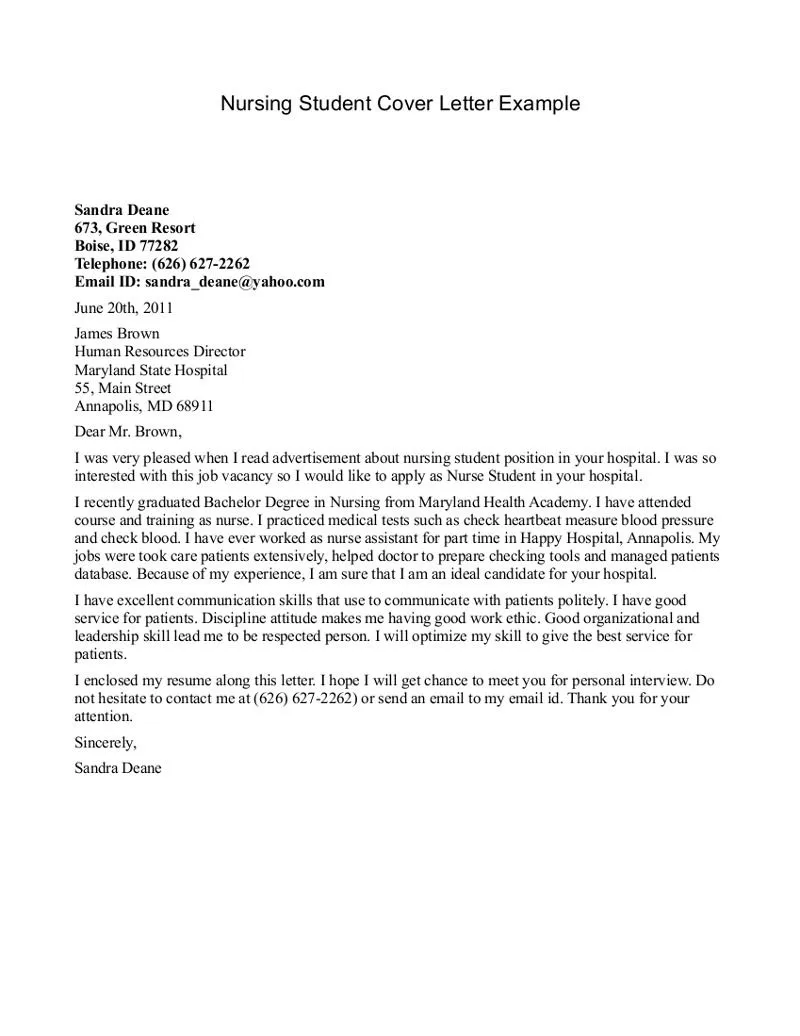What Is a Nurse Cover Letter
A nurse cover letter is a crucial document that accompanies your resume when applying for nursing positions. It serves as your introduction to the hiring manager, offering a personalized glimpse into your qualifications, experiences, and passion for the nursing profession. Unlike your resume, which provides a factual overview of your career, a cover letter allows you to showcase your personality, explain your career goals, and demonstrate why you are the ideal candidate for the specific role. A well-crafted cover letter can significantly increase your chances of securing an interview and ultimately landing your dream nursing job. It is your opportunity to create a positive first impression and persuade the hiring manager to learn more about you.
Key Components of a Strong Cover Letter
A compelling nurse cover letter comprises several essential components, each playing a vital role in conveying your suitability for the position. These include your contact information and the date, the hiring manager’s information, a captivating opening paragraph, a section highlighting your skills and experience, a section quantifying your achievements with data, a tailored approach to the job requirements, a demonstration of your passion for nursing, a strong call to action, and diligent formatting and proofreading. Each element must be carefully considered and crafted to present you in the best possible light. By addressing these components thoughtfully, you can create a cover letter that stands out from the competition and leaves a lasting impression on the hiring manager.
Your Contact Information and the Date
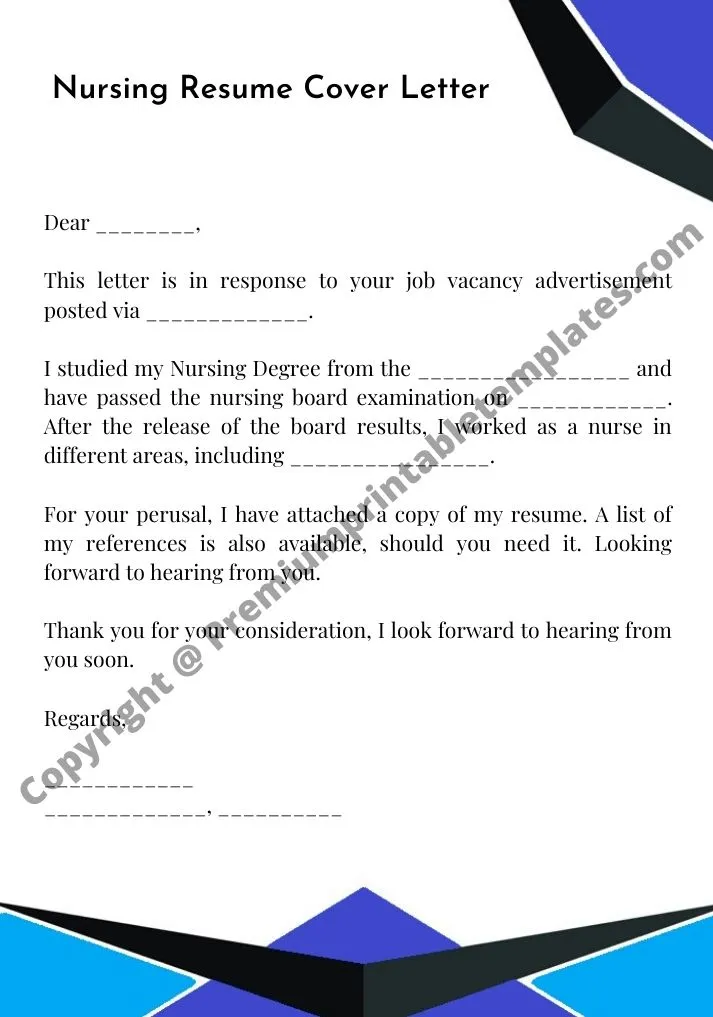
Begin your cover letter by including your contact information at the top left of the page. This should include your full name, phone number, email address, and professional social media profile links, such as LinkedIn, if applicable. Directly below your contact information, add the date you are submitting the letter. This ensures the hiring manager knows when you applied and has easy access to your contact details if they wish to reach you. Correct formatting and clarity are essential to ensure the hiring manager can readily locate and understand this information. It is the initial contact and is necessary for any successful application.
The Hiring Manager’s Information
Next, address the hiring manager directly. If possible, find out the name of the person who will be reviewing your application. Addressing your cover letter to a specific person makes it more personal and shows you’ve done your research. If you cannot find a specific name, you can use a professional salutation like “Dear Hiring Manager.” Below the salutation, include the hiring manager’s title, the department, and the organization’s full address. This demonstrates your attention to detail and respect for the organization, adding a professional touch to your application. Personalizing your letter in this manner can significantly increase your chances of capturing the hiring manager’s attention.
Crafting the Perfect Opening Paragraph
The opening paragraph is your first opportunity to capture the hiring manager’s attention. Start with a strong, concise statement that grabs their interest and clearly states your objective. Mention the specific position you are applying for and where you found the job posting. Briefly highlight your key qualifications or skills that align with the job requirements, showcasing your immediate value. The opening paragraph sets the tone for the entire letter and should motivate the hiring manager to read further. Your goal is to make them want to know more about you. Avoid generic phrases and instead provide a glimpse of what makes you unique and why you are a good fit for the role.
Highlighting Your Skills and Experience
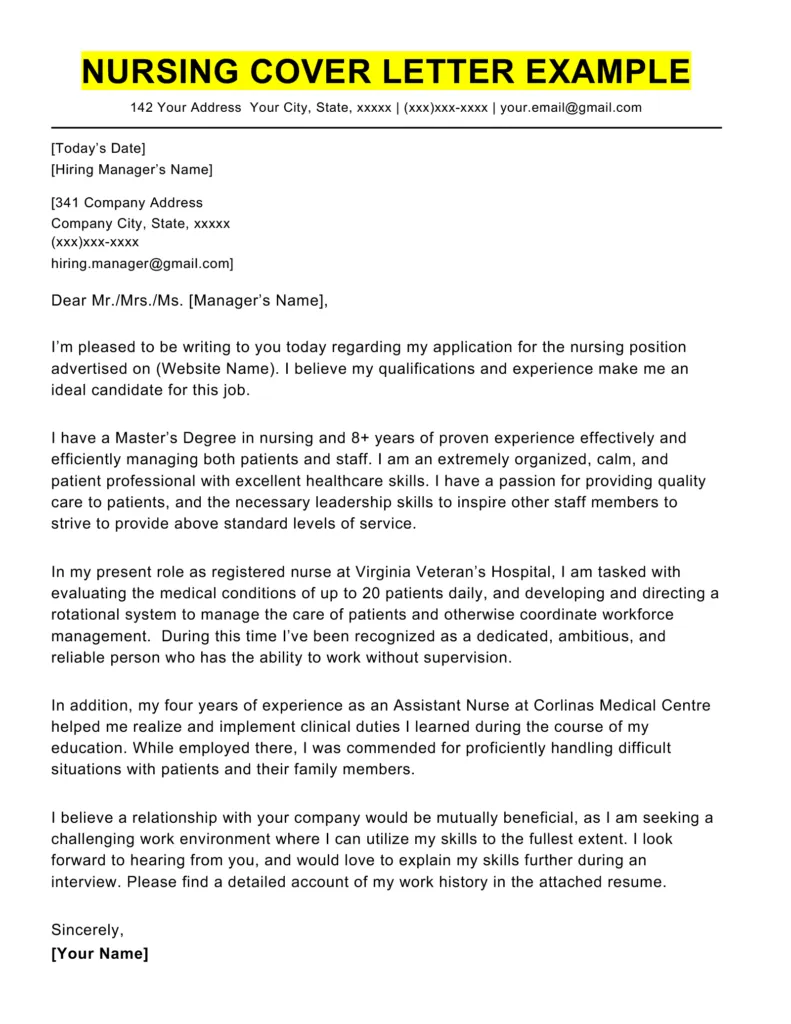
The body of your cover letter is where you elaborate on your skills and experience. Review the job description carefully and identify the key requirements. Then, provide specific examples from your work history that demonstrate how you have successfully used those skills. Quantify your achievements whenever possible to showcase the impact you’ve made in previous roles. Emphasize your relevant certifications, licenses, and any specialized training you possess. Tailor this section to the specific job you’re applying for, highlighting the skills and experiences most relevant to the position. The goal is to convince the hiring manager that you possess the necessary qualifications to excel in the role.
Quantifying Your Achievements with Data
To make your cover letter even more impactful, quantify your achievements with data. Use numbers and statistics to illustrate the positive impact you’ve had in previous roles. For example, instead of saying you “improved patient satisfaction,” state that you “increased patient satisfaction scores by 15% within six months through the implementation of a new communication strategy.” Provide concrete examples of how your actions have benefited the organization or patients. Quantifying your achievements provides tangible evidence of your skills and capabilities, making your cover letter more persuasive and memorable. It also helps the hiring manager understand the value you would bring to their team. By using data, you are demonstrating the real-world results you can achieve.
Tailoring Your Letter to the Job
Avoid using a generic cover letter for every job application. Instead, customize your letter to match the specific requirements and responsibilities of each position. Carefully review the job description and highlight the skills and experiences that align with the role’s needs. Research the organization and tailor your letter to demonstrate your understanding of their mission, values, and goals. By showing that you’ve taken the time to understand the role and the organization, you demonstrate your genuine interest and make a strong impression. This level of personalization will help your application stand out from generic submissions and increase your chances of getting an interview.
Demonstrating Your Passion for Nursing
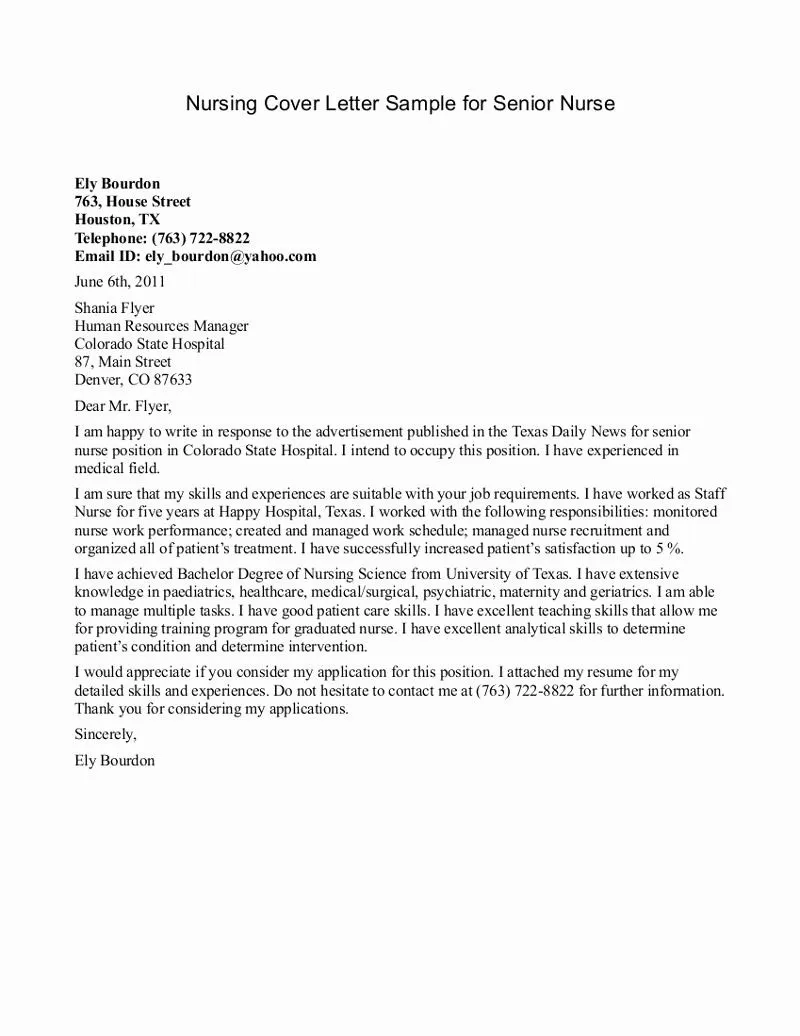
In your cover letter, demonstrate your passion for nursing. Express your enthusiasm for helping patients, making a difference in their lives, and contributing to the healthcare field. Share a brief anecdote or story that illustrates your commitment to patient care. Show your understanding of the challenges and rewards of nursing. Highlight your values and what motivates you to pursue this profession. Your passion is an essential factor that often makes you stand out. Expressing your genuine interest in the profession helps the hiring manager connect with you on a personal level. Make sure your enthusiasm shines through in every aspect of your cover letter.
Including a Strong Call to Action
End your cover letter with a strong call to action. Express your eagerness to learn more about the opportunity and discuss your qualifications in person. Thank the hiring manager for their time and consideration. Provide your contact information again, making it easy for them to reach you. A strong call to action reinforces your interest in the role and encourages the hiring manager to take the next step. Make it clear that you are ready and available for an interview. This can make a positive impression and improve your chances of being invited for an interview. A clear call to action is essential for encouraging the hiring manager to consider your application further.
Formatting and Proofreading Your Cover Letter
Proper formatting and proofreading are essential for creating a professional cover letter. Use a standard font, such as Times New Roman or Arial, and maintain consistent font sizes throughout the document. Use a clear, easy-to-read format, with adequate spacing between paragraphs and sections. Proofread your cover letter carefully for any grammatical errors, spelling mistakes, and typos. Ask a friend or colleague to review your letter for accuracy. Ensure that your cover letter is free of errors and easy to read. A well-formatted and proofread cover letter shows attention to detail and demonstrates your professionalism, making a positive impact on the hiring manager.
Common Mistakes to Avoid
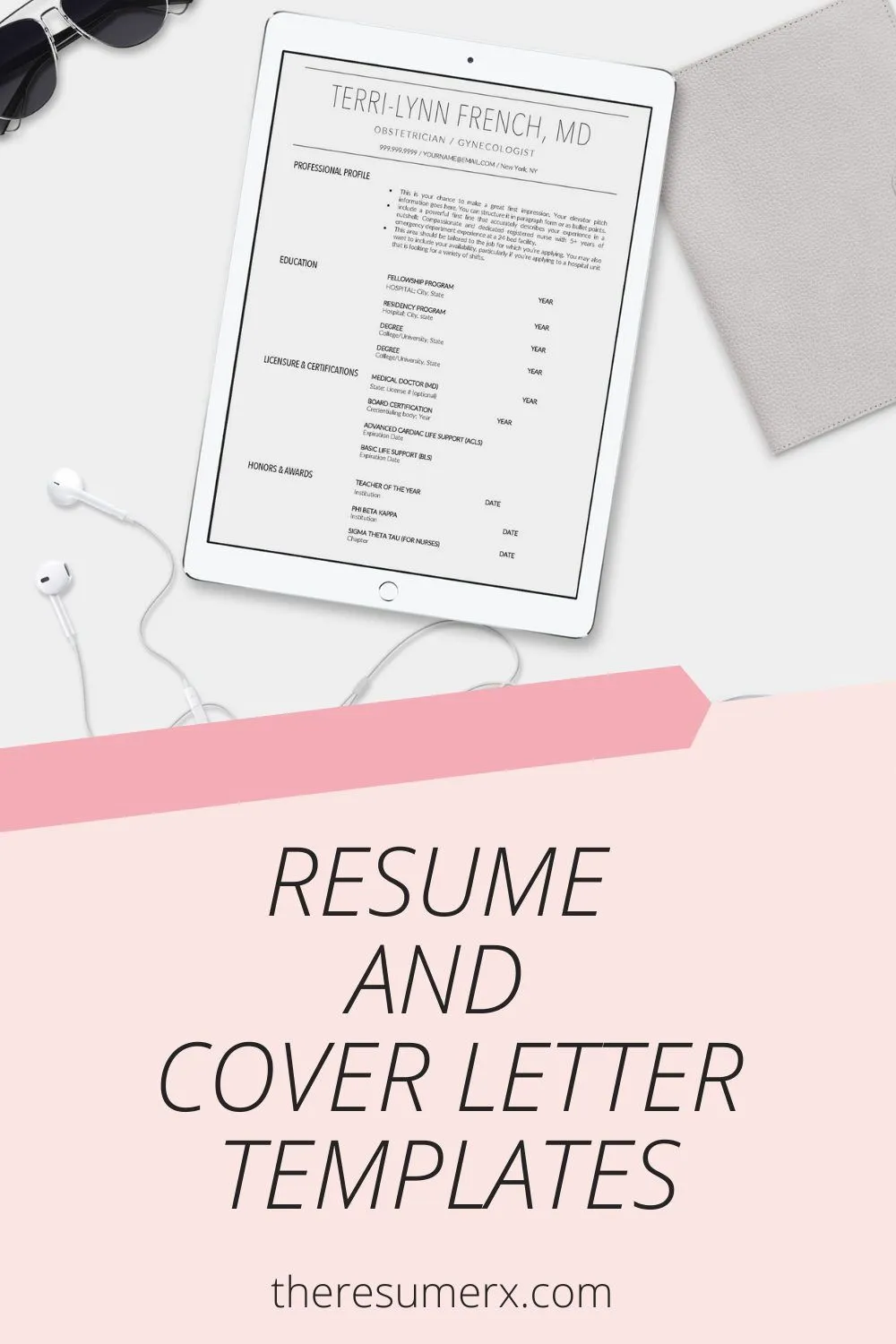
Several common mistakes can undermine your cover letter. Avoid generic opening statements, such as “I am writing to apply for the position.” Do not use jargon or overly technical language that the hiring manager might not understand. Refrain from including irrelevant information or rehashing your resume. Do not use clichés. Avoid typos and grammatical errors. Ensure that your letter is concise and focused on the specific job requirements. Tailor your letter to the role. By avoiding these pitfalls, you can create a cover letter that impresses the hiring manager and increases your chances of getting an interview.
Cover Letter Examples for Nurses
Many online resources provide cover letter examples for nurses. These examples can serve as a useful guide to crafting your own cover letter. Look for examples that match your experience level, the type of nursing role you are seeking, and the specific industry you are targeting. Analyze the language, tone, and structure of the examples to learn how to effectively communicate your qualifications. Be sure to adapt the examples to your specific situation and tailor them to the job requirements. Consider using a template or a guide, but always personalize your cover letter. Make sure the language aligns with your individual experience and expertise. This adaptation will allow you to showcase your individuality. Always check and adapt the examples to your own qualifications.
